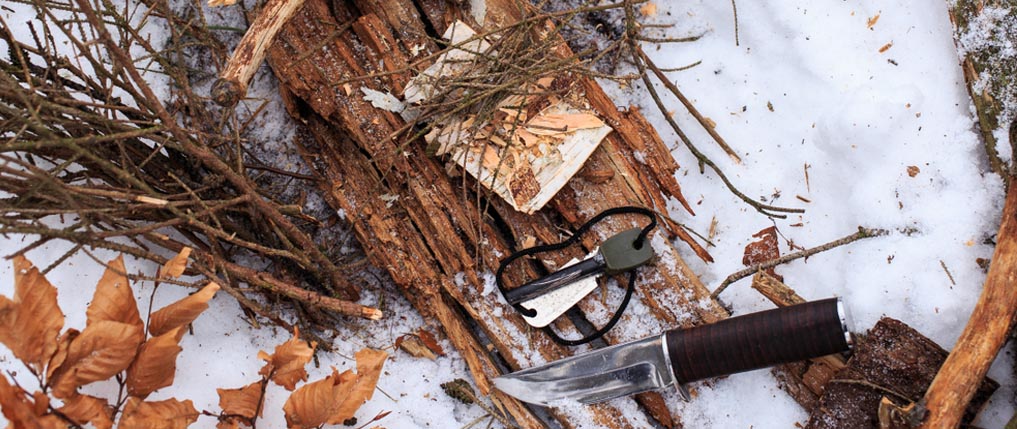Survival skills are essential abilities and knowledge that are necessary to survive in a dangerous or challenging situation. These skills can include things like finding food and water, building shelter, starting a fire, and administering first aid.
Having survival skills is important for anyone who spends time outdoors, such as hikers, campers, and hunters, as well as for those who want to be prepared for emergencies or natural disasters.
Learning survival skills can help individuals stay safe and secure in difficult circumstances, and can also provide a sense of confidence and self-sufficiency.
Check out this Youtube video: If you want to learn essential survival skills for outdoor adventures, this video will teach you 10 important skills every man should know.
Understanding Survival Skills
Importance of Survival Skills
Survival skills are critical abilities and knowledge that enable individuals to navigate and endure through challenging environments and potentially life-threatening situations. These capabilities are not only valuable in wilderness scenarios but also in response to natural disasters, accidents, or other unexpected events. Acquiring survival skills equips individuals with the confidence and preparedness required to tackle adverse circumstances effectively.
In the event of natural disasters or emergencies, the application of survival skills is paramount for personal safety and well-being. Understanding first aid procedures, creating emergency shelters, locating and purifying water sources, and effectively signaling for assistance are fundamental aspects of survival training. Moreover, these skills contribute to fostering self-reliance and the ability to safeguard oneself and others in adverse conditions. Additionally, formal survival training could be particularly invaluable in extreme terrains, climates, or remote settings, where being equipped with the necessary skills can be the difference between life and death.
Survival skills also play a fundamental role in enhancing personal safety. By mastering these abilities, individuals can efficiently handle life-threatening challenges, thus empowering themselves to confront and effectively manage adversities. Therefore, the significance of survival skills lies in their capability to impart self-reliance, enhance situational awareness, and enable individuals to emerge unscathed from distressing predicaments.
Definition of Survival Skills
The term survival skills encompasses a diverse range of capabilities and knowledge that empower individuals to sustain themselves in various environments and conditions. These skills are aimed at providing lifesaving techniques, enabling individuals to thrive and navigate through adversities. They are not limited to wilderness scenarios but are applicable in urban settings, emergency situations, and natural disasters.
Survival skills incorporate a spectrum of fundamental abilities, such as first aid, fire safety, water purification, emergency shelter construction, signaling for aid, and navigating without modern technology. Furthermore, these skills extend to encompass responsible practices in personal hygiene, internet safety, and road safety, thus bolstering individuals’ capability to protect themselves in various aspects of daily life. It is crucial to understand that these skills are not only about physical prowess but also encompass mental resilience, adaptability, and an acute awareness of one’s surroundings.
The definition of survival skills encapsulates an array of critical aptitudes, knowledge, and attitudes that enable individuals to navigate challenges, safeguard personal safety, and emerge resilient in the face of adversities. These skills are a cornerstone of self-reliance and equips individuals with the tools necessary to overcome unforeseen predicaments and emergencies.
| Basic Survival Skills | Description |
|---|---|
| First Aid Knowledge | Understanding and administering essential medical procedures in emergency situations. |
| Fire Safety | Techniques to prevent, manage, and extinguish fires effectively for personal safety and property protection. |
| Water Safety | Knowledge of safe practices and rescue techniques in various water environments. |
| Road Safety | Adhering to traffic regulations and understanding safe conduct as a pedestrian or vehicle operator. |
| Personal Hygiene Practices | Maintaining cleanliness and good hygiene to prevent illnesses and promote overall well-being. |
| Responsible Internet Usage | Safe and ethical online conduct for personal and cyber safety, including protection against cyber threats. |
Basic Survival Skills
Building a Fire
To build a fire, start by gathering tinder, kindling, and fuel. Tinder includes dry bark, leaves, or paper, while kindling can be small sticks or twigs. Arrange the tinder in a pile and create a teepee or log cabin shape with kindling around it. Ignite the tinder using matches, flint and steel, or a fire starter. Feed oxygen to the fire by blowing gently at the base. Gradually add larger pieces of wood to build it up. Remember, learning various fire-starting techniques like the hand drill, fire plough, and bow drill is crucial for survival in the wild.
Creating Potable Water
In a survival situation, finding safe, drinkable water is essential. There are several ways to purify water. Boiling water is one of the most effective methods for killing bacteria, viruses, and parasites. Another method is to use purification tablets or UV lights to kill harmful microorganisms. Solar water distillation is also an option where the sun’s UV rays are utilized to distill water and sterilize it. Remember, always ensure the water is safe to drink before consumption.
Foraging for Food
When foraging for food in the wild, it’s crucial to have a good understanding of local edible plants and wild foods. Learn about common edible plants like dandelions, cattails, and wild berries. It’s important to correctly identify edible plants and know which parts are safe to consume. Additionally, in some regions, foraging for wild mushrooms can be a valuable food source. Be cautious and seek expert advice before consuming any wild plant or fungi.
Tying Knots
Knowing how to tie a variety of knots is an essential survival skill. Knot tying is crucial for building shelters, securing gear, and even making tools. Practice tying knots such as the square knot, bowline, clove hitch, and taut-line hitch. These knots can be used for creating traps, constructing shelters, and securing items, enhancing your chances of survival in the wilderness.
Making a Weapon
In survival scenarios, knowing how to fashion a weapon from available resources could mean the difference between survival and harm. Crafting simple primitive weapons such as spears, slings, and bows can aid in hunting for food or fending off predators. Understanding the principles of weapon construction using natural materials like wood, cordage, and stone can be a game-changer in dire situations.
Building a Shelter
When in the wilderness, having the knowledge to construct a sturdy shelter is crucial for protection from the elements. Learn how to build simple shelters using natural materials such as branches, leaves, and foliage. Mastering different shelter-building techniques like lean-tos, debris huts, and natural shelters is vital for survival in adverse conditions.
Basic First Aid
Basic first aid skills are essential in any survival situation. Understand the principles of treating injuries, including wound cleaning, bandaging, and creating splints. Having basic knowledge of CPR, treating burns, and addressing common outdoor injuries like sprains or insect bites is vital for ensuring well-being in the wilderness.
Fishing and Trapping
Learning how to fish and trap for food can be a life-saving survival skill. Constructing simple fish traps using natural materials can augment your food gathering efforts. Understanding the basics of angling, including making improvised fishing lines and hooks from available materials, is also crucial. Moreover, knowing trapping techniques like snaring and pit traps enhances your ability to secure food in the wild.
Ensure you consider safety at all times during these activities, respecting local regulations and utilizing ethical foraging and trapping practices.
Mental Preparedness for Survival
Importance of mental preparedness
In survival situations, mental preparedness plays a vital role in determining one’s ability to navigate through challenging circumstances. The impact of the brain on survival cannot be overstated.
When faced with adversity, the brain’s response has a direct bearing on an individual’s survival prospects. The brain’s ability to analyze, strategize, and maintain composure can significantly influence the outcome of a survival scenario.
In essence, mental preparedness is the key to enhancing the chances of survival when confronted with unforeseen challenges in the wild.
Maintaining a positive and resilient attitude is essential when venturing into the wilderness. The ability to stay focused, composed, and optimistic in the face of adversity can make a substantial difference.
A positive mindset not only fosters a sense of determination but also impacts decision-making, resourcefulness, and adaptability. The significance of mental preparedness is highlighted by its capacity to instill hope and perseverance in the midst of uncertain and perilous situations.
Mental resilience and preparedness serve as the foundation upon which survival skills are effectively deployed.
Cultivating a survivalist mindset is instrumental in coping with traumatic events and disasters. By embracing preparation, self-care, and identifying support systems, individuals can bolster their psychological readiness to confront the daunting challenges associated with survival scenarios.
Emotional distress can be mitigated through proactive coping strategies and mental fortitude, reinforcing the pivotal role of mental preparedness in enhancing survival prospects.
Strategies for maintaining mental strength in survival situations
Developing self-awareness and emotional regulation is paramount in maintaining mental strength during survival situations. Acknowledging and managing one’s emotions can prevent panic, enhance clarity of thought, and facilitate effective decision-making.
Additionally, fostering adaptability, flexibility, and resourcefulness enables individuals to navigate uncertainties and optimize available resources for survival.
Utilizing mindfulness and relaxation techniques can aid in managing stress and anxiety, fostering mental resilience amidst adversities in the wild. Visualization and mental rehearsal techniques can also be employed to mentally prepare for potential challenges, equipping individuals with a proactive mindset and the ability to confront obstacles with confidence.
Furthermore, fostering a sense of community and camaraderie among individuals engaging in survival activities can provide psychological support, foster collective problem-solving, and alleviate feelings of isolation. Establishing and maintaining positive interpersonal connections can significantly contribute to bolstering mental strength and fortitude in survival situations.
The importance of mental preparedness for survival cannot be overstated, and by fostering a strong, resilient mindset, individuals can enhance their ability to confront and overcome the challenges presented by survival scenarios.
Urban Survival Skills
Adaptation of survival skills in urban settings
When it comes to surviving in urban settings, it’s crucial to adapt traditional survival skills to suit the challenges of city life. Finding Water is a prime example; rather than relying on natural sources, urban survivors must navigate streets and neighborhoods to locate safe water supplies. Another crucial skill is Water Purification, as urban water sources may be contaminated, necessitating the ability to make water safe for consumption. Additionally, Food Search in urban areas involves scavenging for non-perishable food items in abandoned buildings or commercial areas. It’s vital to modify traditional wilderness survival skills to fit the unique demands of city living.
To adapt to urban settings, individuals must also focus on developing Mental Strength and Adaptability. Overcoming the stress and unexpected challenges in a city environment requires resilience and flexibility to cope with daily adversities. Establishing a strong mental attitude and the flexibility to adapt to changing circumstances are essential urban survival skills. These adaptations are crucial for navigating the complexities and dangers of an urban environment.
Unique challenges of urban survival
Urban survival presents a set of distinct challenges compared to wilderness survival. The concrete jungle introduces a range of unique obstacles, including crime, transportation disruptions, and limited resources.
Survivors must navigate built environments, plan for potential criminal threats, and adapt to the high probability of encountering hostile situations. Preparing for urban survival involves honing skills related to self-defense, navigating through urban landscapes, and leveraging limited resources.
Urban survivors must also consider mental and emotional health, as the stress of the city environment can take a toll. To address these challenges, individuals can benefit from specialized training and education that caters to urban survival skills and tactics.
The urban environment demands a different set of survival skills to those needed in the wilderness. Adapting traditional survival skills to fit the unique challenges of city living, including finding water, purifying water, and sourcing food, is essential for urban survival.
Additionally, developing mental resilience and adapting to the distinct challenges of urban settings are critical for successfully navigating the city environment and ensuring personal safety.
| Urban Survival Skills | Adaptation of Survival Skills in Urban Settings | Unique Challenges of Urban Survival |
|---|---|---|
| Finding Water | Water Purification, Food Search | Mental Strength and Adaptability, Unique Challenges |
Key Items for Survival
Essential survival items to carry
When venturing into the wilderness, it’s crucial to carry essential survival items to endure potential emergency situations. Among the most crucial essentials are a map and compass, which serve as your navigational aids and can prevent you from getting lost. A first-aid kit is indispensable for tending to injuries and addressing medical emergencies. Equally important is a signal mirror, useful for attracting attention and signaling for help when in distress. A durable fire starter is essential for warmth, cooking, and signaling, while a water purification system ensures a safe and reliable water source. A multi-purpose knife is invaluable for various tasks, including food preparation and shelter-building. Cordage provides versatility for crafting shelter, securing gear, and first-aid applications. Finally, fishing line and hooks offer opportunities for procuring sustenance in the form of fresh protein.
The importance of being prepared with key items
Being adequately prepared with key survival items is vital for mitigating the uncertainties of outdoor expeditions. It ensures that individuals are equipped to cope with unexpected challenges and emergencies, thereby enhancing their safety and security in the wilderness. Carrying these items is not a sign of paranoia but a proactive approach to facing uncertainties in the wild. By having these items readily available, individuals are better positioned to navigate adverse circumstances and increase their chances of survival. Having the right survival items is not just about being prepared; it’s about empowering oneself and others to effectively respond to unforeseen situations.
Controversial Survival Skills
Debate on certain survival techniques
Debates on certain survival techniques have been rife within the survival community, igniting fervent discussions and polarizing opinions. One controversial technique that has sparked intense debate is the utilization of unconventional sources for sustenance in dire situations.
While some argue that exploring alternative food sources such as insects, wild plants, or even roadkill is a practical skill for emergency survival, others find this repugnant and unsustainable, stressing the importance of traditional food procurement methods.
Another contentious topic is the role of firearms in survival scenarios. Advocates champion the use of firearms for self-defense and hunting, emphasizing their potential utility in protecting oneself and securing sustenance, especially in the wilderness.
Conversely, opponents contend that the presence of firearms elevates risks, raises ethical concerns, and can lead to fatal confrontations, thereby questioning their true necessity in survival situations.
Furthermore, the debate surrounding the efficacy of primitive versus modern survival techniques continues to divide the survival community. While some exalt the prowess of primitive methods, attributing them to a deeper connection with nature and sustainability, others advocate for modern tools and technologies, citing enhanced efficiency and safety.
This dichotomy is a persistent source of contention among survival enthusiasts and experts.
Controversial topics within the survival community
Controversy runs rife within the survival community, giving rise to intense discussions and divergent viewpoints on various pivotal topics. One contentious issue that has stirred significant debate is the significance of individual versus group survival strategies.
While proponents of individual strategies cite autonomy, adaptability, and self-reliance as paramount, proponents of group survival emphasize the strength in numbers, collaboration, and resource pooling to thrive in adverse situations.
Moreover, the contentious discussion of “bugging out” versus “sheltering in place” has ignited fervent discourse. Supporters of “bugging out” advocate evacuating to a predetermined location or wilderness to escape impending threats, emphasizing the importance of mobility and flexibility.
Conversely, proponents of “sheltering in place” argue for fortifying one’s residence or shelter, highlighting the advantages of familiarity with surroundings, resource availability, and reduced exposure to external dangers.
The controversy surrounding DIY (do-it-yourself) versus commercially available survival gear and supplies has also fueled heated discussions. Proponents of DIY gear champion the customization, affordability, and skill development inherent in crafting one’s survival tools.
Conversely, proponents of commercially available gear tout their reliability, extensive testing, and advanced features, challenging the efficacy and standardization of DIY alternatives.
In the same vein, the issue of traditional versus unconventional medical interventions for survival has prompted fervent dialogues. Advocates of traditional interventions uphold the tried-and-tested nature of conventional medical practices, emphasizing their reliability and sustainability.
On the other hand, proponents of unconventional treatments champion innovative, alternative approaches, accentuating adaptability, resource conservation, and self-sufficiency.
Finally, the debate surrounding the role of spirituality and mental fortitude in survival techniques has spurred polarizing opinions. Supporters advocate for integrating spiritual practices and mental resilience-building, emphasizing their significance in fostering hope, perseverance, and psychological well-being during survival scenarios.
Conversely, detractors question the practicality and tangible impact of such approaches, leading to profound discussions within the survival community.
| Controversial Topic | Points of Debate |
|---|---|
| Food Procurement | Traditional vs. Unconventional Sources |
| Role of Firearms | Self-Defense and Ethical Concerns |
| Primitive vs. Modern Techniques | Connection with Nature and Efficiency |
| Individual vs. Group Survival | Autonomy and Strength in Numbers |
| “Bugging Out” vs. “Sheltering in Place” | Mobility and Familiarity |
| DIY vs. Commercial Gear | Customization and Reliability |
| Traditional vs. Unconventional Medical Interventions | Reliability and Innovation |
| Spirituality and Mental Fortitude | Psychological Well-being and Practicality |
Recommended Amazon Products for Basic Survival Skills
Here’s a curated list of products that can help you master basic survival skills with ease. These recommendations are based on functionality, price, and reviews.
Survival Gear Kit 11 in 1
The Survival Gear Kit 11 in 1 is a comprehensive set that includes a fire starter, compass, tactical pen, and more. This kit is highly recommended for its versatility and high-quality materials.
| Pros | Cons |
|---|---|
| All-in-one survival solution | Bulky |
| Durable and reliable | Some items may have limited use |
| Compact and portable |
LifeStraw Personal Water Filter
The LifeStraw Personal Water Filter is an essential tool for creating potable water in the wilderness. It’s lightweight, compact, and can filter up to 1,000 gallons of contaminated water without iodine, chlorine, or other chemicals.
| Pros | Cons |
|---|---|
| Filters bacteria and parasites | Not effective for desalination |
| Lightweight and portable | Requires suction to drink directly |
| Long lifespan |
Gerber Bear Grylls Folding Sheath Knife
The Gerber Bear Grylls Folding Sheath Knife is a durable and versatile tool for various survival tasks. The stainless steel blade and ergonomic grip make it a reliable choice for outdoor use.
| Pros | Cons |
|---|---|
| Sharp and durable blade | Sheath clip may be less secure |
| Ergonomic handle | Slightly heavy for ultralight use |
| Multi-functional design |
S. O. L. Survive Outdoors Longer Emergency Shelter Kit
This emergency shelter kit is compact, waterproof, and reflects up to 90% of radiated body heat. It’s a highly recommended item for building a shelter in various survival situations.
| Pros | Cons |
|---|---|
| Reflects body heat effectively | Not suitable for long-term shelter |
| Lightweight and easy to carry | Limited space for multiple occupants |
| Versatile for different shelter configurations |
First Aid Kit
An essential for all survival situations, having a quality first aid kit can be a lifesaver. This particular kit has all the necessary tools for basic first aid needs.
| Pros | Cons |
|---|---|
| Well-organized and comprehensive | May need additional personal items |
| Compact and portable | Limited quantities for large groups |
| Suitable for various injuries |
Top Recommended Product for Basic Survival Skills
If you’re looking for the best solution for mastering basic survival skills, we highly recommend the Survival Gear Kit 11 in 1. It offers a comprehensive set of tools and equipment for various survival needs, making it a versatile and reliable choice.
Ready to conquer your basic survival skills? Check out the Survival Gear Kit 11 in 1 today for the best results!
Frequently Asked Questions
What are the 5 most important things for survival?
What are the 5 rules of survival?
Why do we need survival skills?
Did you know facts about survival?
What means survival skills?
Reference Links
- https://www.quora.com/Do-you-think-its-important-for-individuals-to-have-basic-survival-skills-when-venturing-into-remote-areas-Why-or-why-not
- https://www.sciencedirect.com/science/article/abs/pii/S0022103119304780
- https://www.reddit.com/r/Survival/comments/10s07d5/what_are_the_key_survival_items_every_person/
- https://www.techtarget.com/whatis/feature/8-ways-to-improve-your-search-engine-ranking
- https://www.semrush.com/blog/improve-seo/







